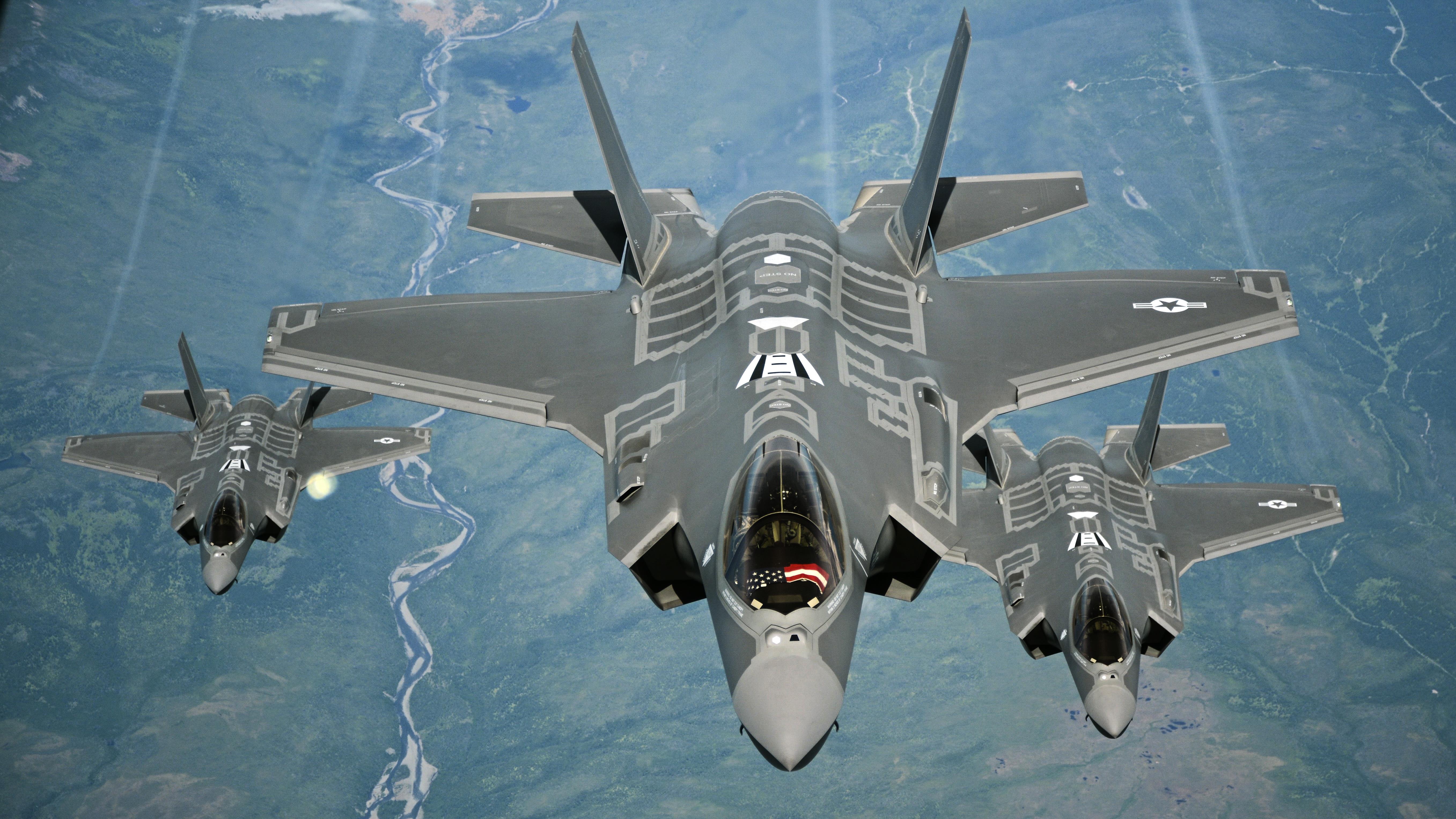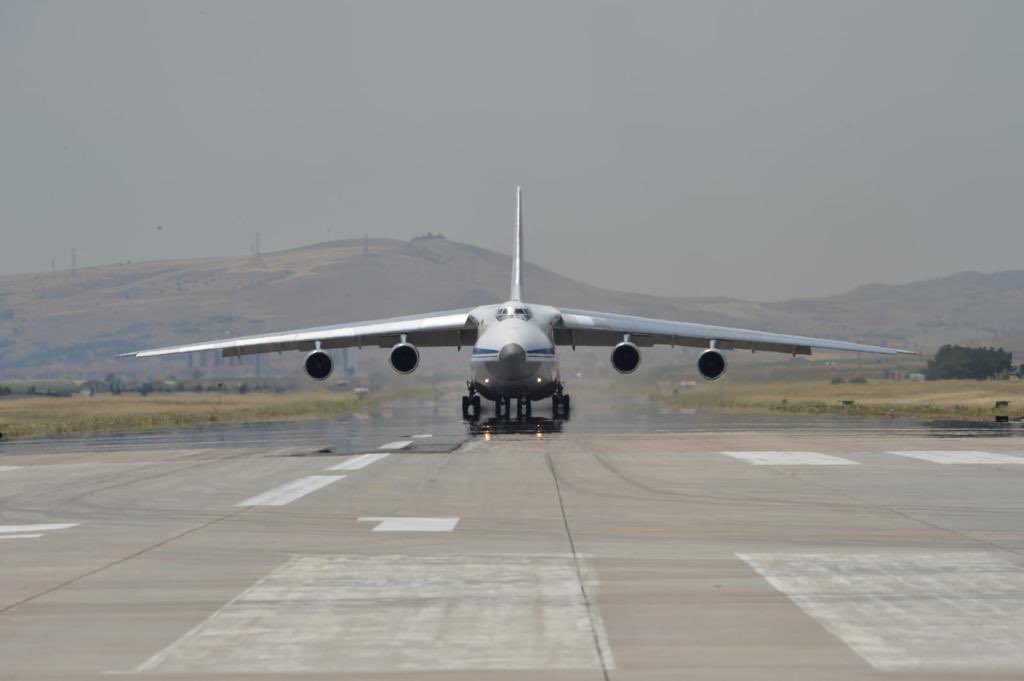
Following a period of silence, the White House confirmed last week that it had shut the door on Turkey’s participation in the Joint Strike Fighter (JSF) program. Turkey had been one of several international partners in the American-led effort to introduce a next-generation multi-role aircraft for frontline service known as the F-35 Lightning II. Washington’s decision came days after Ankara accepted delivery for the first components of the Russian-built S-400 Air Defense System. “Turkey’s decision to purchase Russian S-400 air defense systems renders its continued involvement with the F-35 impossible,” read a White House statement explaining the decision. “The F-35 cannot coexist with a Russian intelligence-collection platform that will be used to learn about its advanced capabilities.” According to Washington, Turkey’s purchase of the S-400 air defense system makes delivery of the F-35 impossible under the Countering America’s Adversaries Through Sanctions Act (CAATSA).
While the move will undoubtedly sour already-tense relations between the two NATO allies, Turkey’s tightening defense relationship with Russia is poised to have far-reaching consequences for the Western Alliance as well as for Armenia.
The F-35 Fighter
Turkey joined the Joint Strike Fighter program in 2002 as a third-tier partner, contributing $175 million to the aircraft’s development. The country has also produced the electrical wiring and hundreds of other parts for the aircraft. Ankara has committed to purchasing 116 of the new stealth fighters and has already paid for the first four airframes.
The F-35 Lightning II multi-role combat aircraft has been described as “leaps and bounds ahead of anything else in the world today” by its proponents. Despite glowing reviews, the F-35’s development history has not been so smooth. At $1.5 trillion, the F-35 is now the most expensive defense program in human history. Technical issues, cost overruns and software glitches have plagued the aircraft throughout the project runtime.
As this fifth generation fighter begins to enter service, it is expected to replace not only older fighters like the F-16 and F/A-18 but also the venerable A-10 Warthog in the ground-attack role and the now-50-year old British-designed Harrier Jumpjet vertical/short takeoff and landing operations (V/STOL). As a weapons system designed to replace so many predecessors in specialized roles, some have questioned whether the Lightning II might be a jack of all trades but master of none.
Regardless, the aircraft’s stealth capabilities as well as the Multifunction Advanced Data Link (MADL) have continued to make it an attractive proposition for Western air forces looking for a replacement aircraft into the next half-century. While the Lightning II’s data package allows for seamless integration with other friendly units for a more cohesive picture of the battlespace, its stealth properties allow it to maintain a radar cross-signature (RCS) hundreds of times smaller than that of similar 4+ generation aircraft.
The S-400 Missile System

Turkey’s newest acquisition, the Russian-built S-400 air defense missile system is an upgraded version of the Soviet-era S-300 battery. Analysts have described the S-400 as being “among the most advanced air defense systems available, on par with the best the West has to offer.”
Surface-to-Air Missile (SAM) batteries such as the S-400 are typically set up as part of a network called Integrated Air Defense System (IADS). These networks coordinate operations between various radar systems command posts and interceptor squadrons to prevent or dissuade opponents from striking vital military or economically-significant targets on their territory. The S-400, which fires the modern Triumph Anti Air (AA) missile, uses sophisticated software to intercept intruders at a maximum engagement range of 400 kilometers. It is specifically designed to deal with stealth, radar jamming and even low-flying threats, rendering it potentially dangerous to the F-35.
While the S-400 air defense system is capable of detecting and engaging virtually any areal threat in the modern battlespace, the F-35 is rumored to have developed software and tactical countermeasures to this specific type of battery. The simultaneous operation of this fifth generation jet with a rival SAM system might seriously compromise the entire JSF program. Congress has judged the risk of F-35 performance data (such as RADAR and ESM signatures) leaking to the Russians to be unacceptable, thus pushing for CAATSA on Ankara.
Context of the Dispute
Turkey has argued that it only purchased the S-400 after being refused access to US-made Patriot batteries to defend its southern border with Syria. President Trump seemingly justified Ankara’s position in a press briefing by blaming the Obama administration for the debacle. However, Ankara has been steadily drifting away from the West throughout President Erdogan’s time in office, while steering his country in a more independent policy-direction. Simultaneously, Ankara’s relationship with Moscow has survived incidents like the shoot-down of a Russian jet near Syria and the murder of a Russian ambassador. The two countries, despite technically being part of rival defense blocs and opponents in the Syrian conflict, have greatly stepped-up regional cooperation on several different matters.
Consequences for NATO
As a NATO-member for almost 65 years, Turkey has historically played a crucial role against the Soviet Union. Since the latter’s demise, however, the country has reinvented itself as an essential jumping-board for NATO operations in Syria, Iraq and Afghanistan. However, aside from adopting a SAM battery which is incompatible with the NATO Integrated Air Defense System, Turkey’s unilateral cooperation with a traditional rival has put the country at odds with NATO’s interests and placed its future relationship with the Alliance in jeopardy.
Russia and Armenia
Consequently, Ankara’s new arms acquisition, as well as recent good-footing with Moscow, has placed Yerevan in a potentially awkward position. Armenia’s main ally has provided its most lethal enemy with a more advanced version of the weapons system which it had just delivered to Armenian military. Additionally, Russia’s offer of the upgraded Sukhoi Su-35 to Turkey as en-lieu of the canceled F-35 delivery should raise eyebrows in the Armenian Defense Ministry, given Armenia’s recent acquisition – at a high cost – of the Su-30SM fighter of the same family of aircraft.
Periods of thawed relations between Turkey and Russia don’t always bode well for Armenia, as evidenced by the 1922 Kars Treaty. However, this turn of events might present some unexpected opportunities for Armenian policymakers. For one, Turkey may hesitate to antagonize its neighbor further for fear of spoiling relations with its new partner.
On the other hand, Armenia might find itself in a better position to benefit from Turkey’s increasingly shaky relationship with the United States. Arguments, such as protecting the relationship with Ankara may no longer be justifiable excuses to torpedo genocide recognition bills in Congress.
Despite the hard rhetoric, there are signs that the White House has not entirely sealed the door on Turkey’s JSF project. Whatever the outcome, diplomats in Yerevan will be keeping a close eye on proceedings.


An excellent piece of writing that looks at the current state of international relations with regard to the Transcaucasus….that have evolved significantly from the post World War 2 NATO vs. Warsaw pact cold war situation. I ma among those who regard the presence of a US Embassy in Yerevan as a positive development towards regional development and solutions…despite the war mongering and major economic interests (especially oil) that drive the contemporary dynamic.
President Trump as well Erdogan are both unpredictable, I wouldn’t bet my Dollar on none of them.
The purchase of the S 400 surface to air missile system will effective keep the superior Hellenic Airforce in comparison to the Turkish airforce away from the Greek Islands Airspace and blanket Cyprus and the hydrocarbon rich sea areas that belong to the Greek Cypriots. This has change the defense dynamic of the eastern Mediteranean reinforcing the continual traditional nuisance aggression of the Turks. USA cannot give the Turks the F 35 aeroplane as the Turks would immediately give it to the Russians who would take it apart and fine tune their missile system to actually pinpoint the plane. The Turks would also make lots of money out of this move. It is also very disappointing that Orthodox Russia has given this weapond to the TUrks with Putin parading aroiund as being a defender of Christian Orthodoxy in the world with his Russian Patriarche . Putin is obviously endavoring to destabilse the Eastern Mediteranean for what reason . Maybe to start a war over the hydrocarbons as this nerw source in the Levanthian basin makes the West less reliant upon Russian Gas or going to conspiracy theories he would love to take back the Bosphorous coming in as the saviour of Orthodoxy when the Greeks and the Turks are fighting.The S 400 missile system is bad for all the neighbouring countries to Turkey especially Greece and Cyprus . The Turks are the traditional enemies of the Greeks, Cypriots ,Armenians and Kurds they are not for peace.Thsi is a very disturbing development.
Any second now, our resident “God bless mother Russia” apparatchiks will show up making excuses for what a good thing Russia did by giving Turkey a more advanced missile system than what Armenia actually has. The funniest part is, those morons in the Armenian “government” actually knew that this deal was in place and went ahead with the purchase of “advanced” Russian planes (which Armenia cannot actually afford) instead of having the balls to tell Russia that if Armenia’s enemies will have missile systems that can shoot down Armenian planes, there is absolutely no reason for Armenia to purchase any planes at all, especially with money it does not even have. As I have been saying all along, and yet another evidence, Russia is making Russia great again by making Armenia pay for it at the hands of laughably ridiculous, incompetent clowns calling themselves the “Armenian government”. And no, the so-called “revolution” and leadership change hasn’t done a damn thing, and possibly made Armenia’s security even worse.
What Armenia actually needs is more advanced, longer range missile systems that can destroy both planes and infrastructure in both Turkey and Azerbaijan should any conflict break out. But Armenia has no real leaders to make any demands from “Mother Russia”. The bozos in the Armenian “government” are too busy planning how they are going to hoard money overseas for the prosperity of their destitute “loved ones” for a bright future.
As I previously predicted, Erdogan is going to get his friend Putin to help him get the best possible deals in both missile systems and planes, playing both Russia and the USA, and we now see phase one completed. Next, “Mother Russia” will help Turkey out with some nuclear plants. And all the while the idiots we have in Armenia are sitting back watching like obedient little lapdogs of Putin, who are too chicken to even do anything about Azeri crimes and aggression. Maybe their brilliant plan is to wait until Turkey finishes acquiring all the deadly weapons it needs to solidify its alliance with Azerbaijan even more so that they can all start “discussions for the status of Artsakh”. Armenia’s “leaders”: one continuous shitshow of incompetence and buffoonery for 100 years straight.